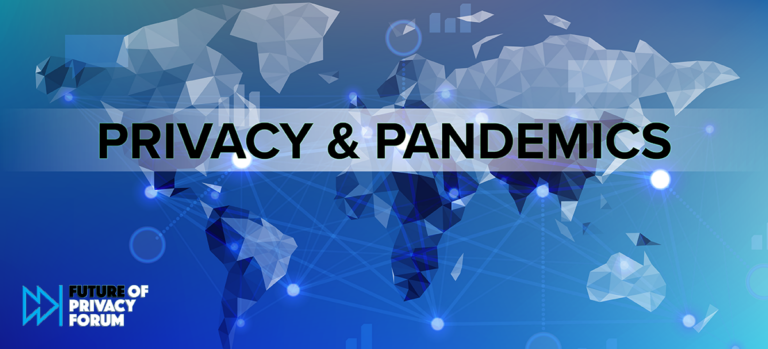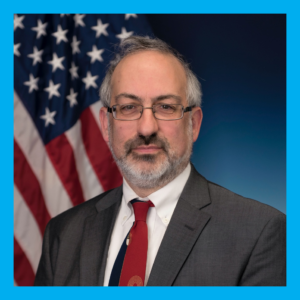
(Day 1 Participant Bios)
Keynote:

Katherine Yelick
University of California, Berkeley
Katherine (Kathy) Yelick is the Robert S. Pepper Distinguished Professor of Electrical Engineering and Computer Sciences(link is external) and the Associate Dean for Research in the Division of Computing, Data Science and Society at UC Berkeley(link is external). She is also the Senior Advisor on Computing at Lawrence Berkeley National Laboratory(link is external) (LBNL). She currently leads the ExaBiome(link is external) project on scalable tools for analyzing microbial data and co-leads the Berkeley Benchmarking and Optimization (Bebop(link is external)) group. She was the Associate Laboratory Director for Computing Sciences at LBNL(link is external) from 2010 through 2019 and prior to that, the led the National Energy Research Scientific Computing Center (NERSC(link is external)). Yelick is a member of the National Academy of Engineering and the American Academy of Arts and Sciences, and she is a Fellow of both the Association for Computing Machinery and the American Association for the Advancement of Science.
Conveners:

Rob Brennan
Dublin City University
Rob is an Assistant Professor in the School of Computing at Dublin City University.
Session 3 Firestarters:

Magali (Maggie) Feys
AContrario.Law – Anonos
I am a European Data Protection Lawyer and serve as Chief Strategist of Ethical Data Use at Anonos. I’m also the Founder of AContrario.Law, boutique law firm in IP, IT and Data Protection Law. In addition, I am a member of the legal working party e-Health, working with the Belgian Minister for public healthcare. Currently, I’m also writing a PhD on the secondary use of health-related data. (Position Statement: Even desperate times call for “Fair Trade Data”*) (Slides: Even desperate times call for “Fair Trade Data”)

Kimball Parker
SixFifty Technologies, LLC
Kimball Parker is CEO of SixFifty and Director of LawX at Brigham Young University. A graduate of University of Chicago Law School, Kimball began his legal career at Quinn Emanuel Urquhart & Sullivan followed by Parsons Behle & Latimer. SixFifty is the Tech subsidiary of the law firm Wilson Sonsini, and builds legal tools that help Enterprises solve complex legal problems in streamlined and affordable ways. SixFifty also builds free tools for individuals who can’t afford an attorney, including HelloLender and HelloLandlord. (Position Statement: Flexible Regulation i the Time of COVID*)

Evan Selinger
Rochester Institute of Technology
Professor of Philosophy at Rochester Institute of Technology and Affiliate Scholar at Northeastern University’s Center for Law, Innovation, and Creativity. (Position Statement: The Urgency of Creating a Slippery Slope Framework*)
Session 3 Participants:

Haleh Asgarinia
University of Twente, Department of Philosophy
I am doing a PhD at Behavioural, Management, and Social Science Faculty (BMS) at the University of Twente. My research interests cover ethics of emerging technology, privacy and data protection. My PhD project is defined under the ‘PROTECT- Protecting Personal Data Amidst Big Data Innovation’, funded by the European Commission’s Horizon 2020 programme. (Position Statement: The role of privacy impact assessment in shaping privacy-protecting technical solutions*)

Jill Bronfman
Common Sense Media
Common Sense Media’s privacy evaluations are available at https://privacy.commonsense.org/.
(Position Statement: Privacy and Pitch: Privacy and Pitch: How to Balance Student Privacy With College Application Success in the Social Media Era*)

Oskar Van Deventer
TNO
Oskar is a Senior Scientist at TNO.
Oskar van Deventer is responsible for the research agenda on Self-Sovereign Identity of the Dutch national research institute TNO. He is chair of the use-case implementations group of the COVID-19 Credentials Initiative. He is also technical coordinator of the EU eSSIF-Lab project that develops and tests interoperable SSI solutions with its subgrantees. Oskar is actively contributing to various SSI standards activities (W3C, Sovrin, Hyperledger) as well as various national SSI projects. (Position Statement: We need countermeasures against SSI coercion*)

Beverley Hatcher-Mbu
Development Gateway
Beverley Hatcher-Mbu is an international lawyer with experience in project implementation, client management, policy analysis and data protection. Focused on connecting client needs to technical, policy and privacy solutions, Beverley manages DG’s work in Haiti and supports DG’s work in the extractive industry, country data use landscapes, and agriculture. She manages part of the operations team and advises on data governance and protection issues across DG programs. (Position Statement: Privacy and the Pandemic: Rebuilding Responsibly in a Post-COVID World*)

Deanne Kasim
Executive Director, Health Policy, Change Healthcare
Deanne has built a career on helping healthcare, life sciences, health IT, investors, associations and government organizations navigate and leverage evolving changes in technology, policy, regulation and market dynamics. Technology is most often ahead of current policy and regulation in healthcare and technology. Deanne specializes in educating regulators and legislators on important issues and finds key opportunities amid change and chaos to create better policies and product roadmaps.

Amy Hawn Nelson
Actionable Intelligence for Social Policy, University of Pennsylvania
Amy Hawn Nelson is Research Faculty and Director of Training and Technical Assistance for Actionable Intelligence for Social Policy (AISP), an initiative of the University of Pennsylvania that helps state and local governments collaborate and responsibly use data to improve lives. Dr. Hawn Nelson is a community engaged researcher and has presented and written extensively on data integration and intersectional topics related to educational equity. (Position Statement: Call for Position Statements on Responsible Uses of Technology and Health Data During Times of Crisis 9/21/2020*)

Tiffany Li
Boston University School of Law
Tiffany C. Li is a professor at Boston University School of Law and a Fellow at Yale Law School’s Information Society Project. Li is an expert on privacy, artificial intelligence, and technology platform governance, and her writing has appeared in popular publications including the Washington Post, the Atlantic, NBC News, and Slate. She has a J.D. from Georgetown Law and a B.A. from UCLA.

Nora McDonald
University of Maryland, Baltimore County (UMBC)
Nora is a Research Assistant Professor at the University of Maryland, Baltimore County (UMBC) where her work focuses on providing safe and ethical technologies and internet access for vulnerable communities. In addition to advancing more critical theories that take into account those most vulnerable among us, she also theorizes about the impact of structural inequalities and new types of data relations on our identities and shifting norms around surveillance and privacy. (Position Statement: Private Alternatives: Community Mesh Internet During COVID-19*)

Anuj Puri
University of St. Andrews
Anuj is an interdisciplinary PhD student based at University of St Andrews’ department of Philosophy and school of Management. His research focuses on the group right to privacy. He completed his LL.M. from Columbia University School of Law. Prior to commencing his doctoral research, Anuj practiced Constitutional Law before the Supreme Court of India. He was also a visiting faculty at Indian Institute of Management (IIM) Shillong and the National Academy of Legal Studies and Research (NALSAR) Hyderabad. (Position Statement: Post Pandemic Simveillance*)

Divya Ramjee
American University
Divya is a PhD Candidate and Adjunct Professor in the Department of Justice, Law and Criminology within the School of Public Affairs at American University.
(Position Statement: Position Statment*)

Mario Romao
Intel Corporation
Global healthcare policy @ Intel
(Position Statement: COVID-19: FEDERATED LEARNING FOR PRIVACY PRESERVING MULTI-INSTITUTIONAL COLLABORATION*)

Boris Segalis
Partner, Cooley LLP, Vice Chair cyber/data/privacy practice
Boris helps clients navigate the global data protection landscape to build, sell and acquire cutting-edge, data-driven businesses and guide them when their data or cyber practices are tested by hackers, media or regulators. This year, Boris work on Cooley’s COVID-19 portal and helped leading technology companies such as Citizen, Twenty, Sprinklr, Everbridge, Kinexon, CLEAR, develop contact tracing and facility access solutions. Boris has focused his practice exclusively on privacy, data protection and cybersecurity for over a dozen years. He has been recognized for multiple years by Chambers USA in the area of Privacy & Data Security, and has previously been recognized by Crains NY 40 under 40. He is a Certified Information Privacy Professional (CIPP/US) through the International Association of Privacy Professionals, has served as co-chair of NYC IAPP KnowledgeNet and served on the IAPP’s Research Board.

Bhumika Sharma
Himachal Pradesh University
Bhumika is a PhD Research Scholar at Himachal Pradesh University in Shimla, India.
(Position Statement: Privacy Protection vis-a-vis New Zealand- NZ COVID Tracer Application*)
Session 4 Discussants:

Natalie Evans Harris
BrightHive
Co-Founder & Head of Strategic Initiatives.

Vincent Cassard
ICRC
Senior Manager I Humanitarian I Digital Transformation I DPO @ ICRC

Jane Bambauer
University of Arizona
Prof. Bambauer’s research assesses the social costs and benefits of Big Data, and questions the wisdom of many well-intentioned privacy laws.
Session 4 Participants:
(Session 4 also includes participants from previous sessions)

Malika Bendechache
Dublin City University
Dr Malika Bendechache is an Assistant Professor in the School of Computing at Dublin City University. She teaches in Blockchain and Distributed Ledger Technology. Malika’s research interests span the areas of Big data Analytics, Machine Learning, Data Governance, Cloud Computing, Blockchain, Security and Privacy. She has worked on various research projects including large scale EU projects. Malika is currently the Co-PI of the PRIVATT project “Assessing Irish Attitudes to Privacy in Times of COVID19” funded by Science Foundation Ireland. (Position Statement: PRIVATT Position Statement)

Caitlin Chin
The Brookings Institute
Caitlin Chin is a research analyst at the Brookings Institution’s Center for Technology Innovation. At Brookings, she contributes to public policy research on data privacy, artificial intelligence, antitrust, and broadband. (Position Statement: Managing Future Pandemics: Benefits and Challenges of Creating a Common Data Space for Highly-Infectious Diseases*)

Ronen Cohen
Duality Technologies
Ronen Cohen leads strategy and product marketing for Duality Technologies, helping clients leverage privacy-preserving data science solutions. Previously, he was the Director of Product Marketing at Dataminr, leading the function globally across all private and public sector verticals. Prior to that, Ronen worked in the Financial and Regulatory technology markets, including at NICE Actimize, where he focused on financial crime investigations. He also founded a personal lending company to help underbanked communities. (Position Statement: Position Statement*)

Ana DeCesare
Duke University
Undergraduate at Duke University. Trinity School of Arts and Science.

Jeremy Epstein
Lead Program Officer, Secure and Trustworthy Cyberspace, National Science Foundation

Adam Lodders
Centre for AI and Digital Ethics, University of Melbourne
Adam Lodders is interested in the ethical, legal and policy challenges of emerging technologies including data protection and privacy, and the design, operation and maintenance of digital systems. Adam has experience in government data policy and strategy and enabling interdisciplinary research to explore the networked society. Adam has qualifications in law, public policy and economics. (Position Statement: Opt-in didn’t work for digital contact tracing in Australia, but does that justify an ‘opt-out’ approach? Not yet – at least in Australia*)

Erin Simpson
Center for American Progress
Erin Simpson is the Associate Director of Technology Policy at the Center for American Progress. Simpson joins CAP from the Oxford Internet Institute, where she supported international civil and human rights leaders in grappling with disinformation and advocated for improved platform regulation in the EU, UK, and US. Previously, Simpson served as the founding Director of Programs at Civic Hall Labs. (Position Statement: Trust Deficit Why a Lack of Trust in Government and Technology has Harmed our Pandemic Response*)

Luke Stark
University of Western Ontario
Luke Stark is an Assistant Professor in the Faculty of Information and Media Studies at the University of Western Ontario. His work interrogating the historical, social, and ethical impacts of computing and AI technologies has appeared in journals including The Information Society, Social Studies of Science, and New Media & Society, and in popular venues like Slate, The Globe and Mail, and The Boston Globe. Luke was previously a Postdoctoral Researcher in AI ethics at Microsoft Research, and a Postdoctoral Fellow in Sociology at Dartmouth College; he holds a PhD from the Department of Media, Culture, and Communication at New York University.

Julia Stoyanovich
New York University
Julia Stoyanovich is an Assistant Professor of Computer Science and Engineering and of Data Science at New York University. Julia’s research focuses on responsible data management and analysis: on operationalizing fairness, diversity, transparency, and data protection in all stages of the data science lifecycle. She is the founding director of the Center for Responsible AI at NYU, a comprehensive laboratory that is building a future in which responsible AI will be the only kind accepted by society. (Position Statement: The Future of Privacy is Data Equity*)

Ferenc Vagujhelyi
Scientific Association for Infocommunications
Computer mathematician; for more than two decades designed and developed systems for public services, government applications, and fraud detection; his main focus is to design and implement cryptographic methods to introduce trusted digital identity, privacy protection, and decentralized trust; legislative advisor on the field of IT (Position Statement: Privacy-preserving SARS-CoV-2 Contact Research*)

P.J. Wall
Trinity College Dublin, Ireland
Dr P.J. Wall is a Research Fellow with the INTEGRITY H2020 Project in the ADAPT Centre (www.adaptcentre.ie) in the School of Computer Science, Trinity College Dublin. His research examines technological innovation in the Global South (ICT4D) with particular focus on the use of mobile devices/apps/artificial intelligence and the ethical implications associated with using such technology in this context. His main interest concerns the social, cultural, and political aspects of the implementation and use of these technologies. One of his main research projects is based in Sierra Leone and examines the role of mobile phones in re-configuring public health systems and practices (mHealth), and how such systems are dealing with the COVID19 pandemic.
